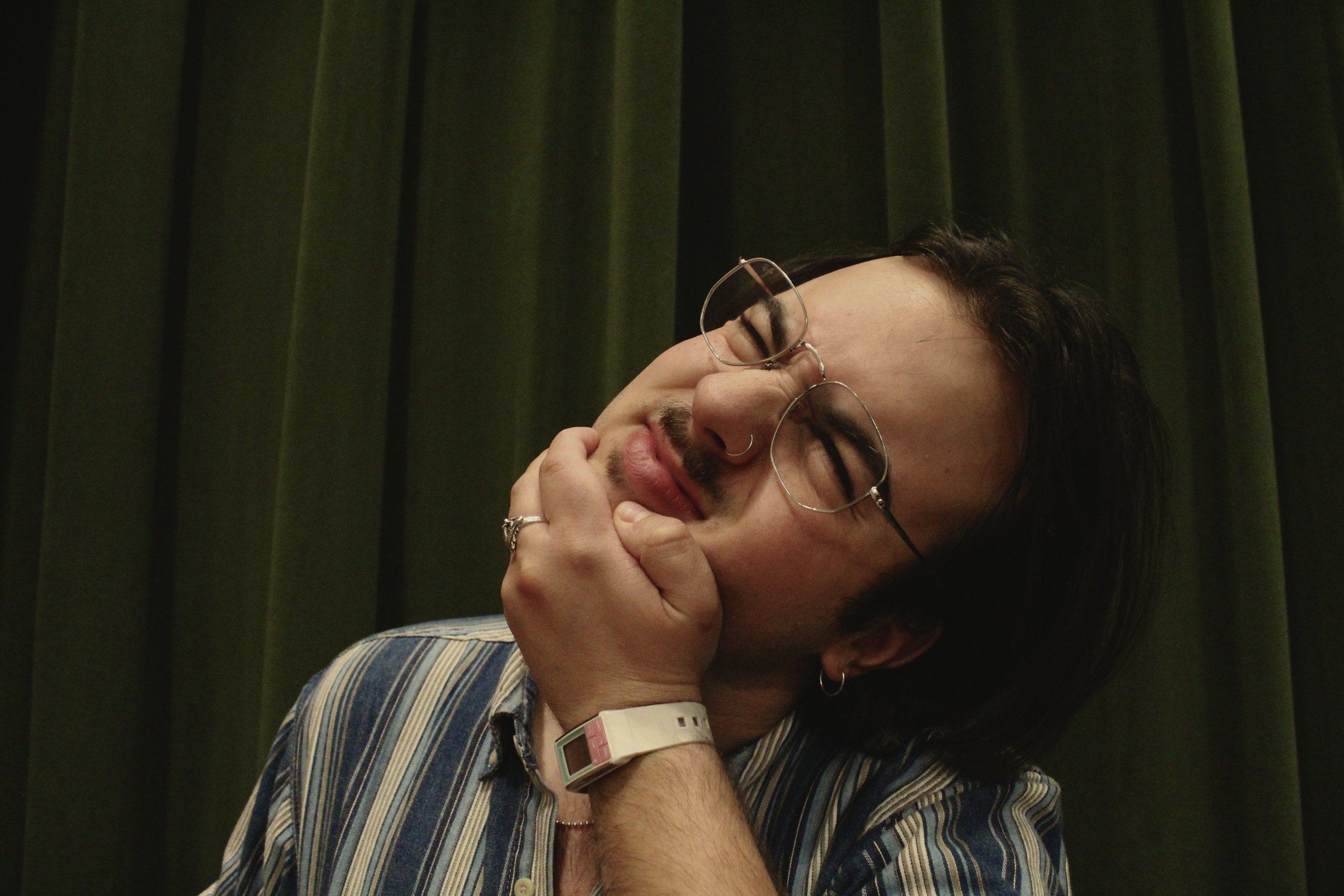500-word bio
Jaze Matteo Wharton is a new music composer from Sacramento, CA. He enjoys writing for chamber ensembles, especially ones with nonstandard instrumentation. He currently studies at the Johns Hopkins Peabody Institute with Oscar Bettison. His other education includes a BA in philosophy and a BA in music composition from the University of California Santa Barbara College of Creative Studies where he studied with Sarah Gibson, Leslie Hogan, and Andrew Tholl.
trying to crack my neck // photo taken by McKey Monroe
Wharton’s music explores adventurous forms, complex rhythms, and angular harmony. He enjoys writing music that challenges expectations of form by frequently integrating rapid shifts between sections as well as shifting tonality without notice. His sporadic but cohesive writing style mimics the way we consume content in our day-to-day lives and aims to metabolize the senses of fragmentation and of being unmoored present in the modern world.
Lately, Wharton has been expanding his practice to include improvisation, aleatory, and electronics, often with the aim of increasing the agency of the performers that he works with. Wharton emphasizes this more democratic music-making process in his process by inviting performers to freely interpret his pieces rather than micro-manage them into stilted and stiff performances.
His work often delves into the philosophical and the sociopolitical with much of his extramusical content developed from observations of the often ridiculous world around us all. His Corwin Award Winning piece Not What We Oughta Do examines the difference between how early humans lived and how we have chosen to live in the 21st century, debt, bureaucracy, and all. Other pieces focus on broader philosophical ideas such as in The Half-Silvered Mirror, where Wharton examines how history is constantly reshaped in the modern day.
Wharton is also an experienced songwriter and DIY producer. He has worked on and released many projects available for streaming under the name ‘Jaze Matteo.’ His background in more popular genres of music informs his choices in more classical realms where he toys with pop and classical conventions in order to subvert the expectations of audiences.
Recently he has blended these two halves of his practice in scores he has developed for films by frequent collaborator Cyrus Roberts. In the scores for The Siren and The Heart, Wharton explores many of the timbres and production techniques associated with pop, rock, and rap music while also employing more classical conceptions of form.
Wharton involves himself extensively in the local music community wherever he goes. From writing for performance majors within his university to performing with indie rock bands in packed, sweaty garages, while also scoring visual media for his filmmaker friends, he understands and emphasizes the communal and interpersonal nature of music-making in his practice.
Looking forward, Wharton is excited to write for larger ensembles and further his explorations of blended music cultures as well as writing more pieces that employ graphic and electronic elements.

